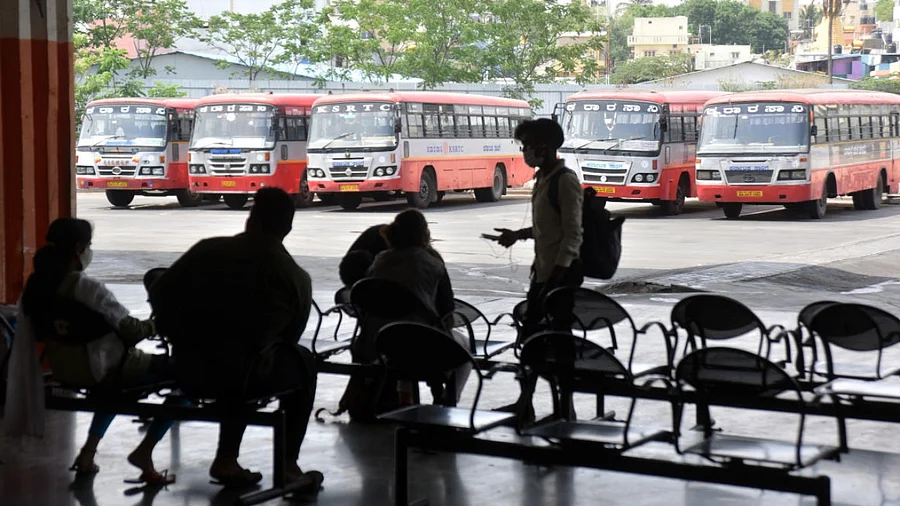
More than one lakh out of the total 1.11 lakh employees of the four road transport corporations in Karnataka have been striking work since April 7, demanding salaries as per the Sixth Central Pay Commission recommendations. The state government has flatly rejected the demand, and the resultant deadlock has crippled public transport for more than a week now. As things stand, neither party is in a mood to budge. Let's understand why the bus strike has dragged on for so long and if there's a way out:
Why are the RTC employees hell-bent on the sixth pay commission?
Unlike other government departments, road transport corporations (KSRTC, BMTC, NWKRTC and NEKRTC) have to fend for themselves. The government seldom helps them in times of crises.
The salaries of the nearly 12 lakh employees of the state government are decided as per the pay commission. But this doesn't necessarily apply to the 120-odd government corporations and boards. Only some of them go by the commission's recommendations. The RTC employees have traditionally depended on their trade union (the KSRTC Staff and Workers' Federation), which successfully negotiated big salary hikes for them in 2012 and 2016. The RTC employees were looking forward to a hike by the end of 2020. They also demanded the status of government employees because of a lack of information on the pay hike.
In the meantime, the pandemic happened.
As people stayed indoors, the earnings of the RTCs took a big hit. The transport corporations were too broke to give the employees the promised hike. The employees became inpatient. They abandoned their union, formed a new one called the Karnataka State Road Transport Employees League and went to strike in December.
The December talks
The employees, led by farmer leader Kodihalli Chandrashekar, had called off their strike in December after four days following talks with the government. They say the government had promised to pay them as per the sixth pay commission. The government, however, claims it made no such promise but had only assured to "look into the demand". With both sides having their own version of what transpired at the closed-door meeting, it's hard to say whether the government made a promise which it couldn’t fulfill.
The financial and technical problems
The main reason why the government has rejected the league’s demand is its financial burden on the exchequer. The salary expenditure of the four corporations, the government says, will result in an additional burden of Rs 800 crore per year. Another worry, according to a senior official in the finance department, is that fulfilling such a demand might embolden the employees of other boards and corporations.
One of the technical issues cited by the government is the lack of matching job profiles and salary scales. For example, the pay commission doesn’t have many allowances that RTC employees get at present. Officials in the finance department say the RTC workers were asking for the best of both, which is impossible to fulfill.
The deadlock
The government has threatened to invoke the Essential Services Management Act, which applies to the RTCs, to punish the striking workers. But the league argues that it had followed the rules and given the government a 22-day notice before launching the strike. The government’s attempt to break the deadlock by deploying private buses or declaring the strike illegal has had a negligible impact on the employees.
The way forward
Except for the Rs 2,400 crore released in last year, the government has never paid for the hike of RTC employees. Until last year, the RTCs proposed a hike and the government cleared it, with the rider that the additional burden would have to be met by by the internal revenues of the respective transport corporation. However, given the precarious financial situation of the RTCs and the need to provide sustainable public transport, it's time that the government started investing in them.
